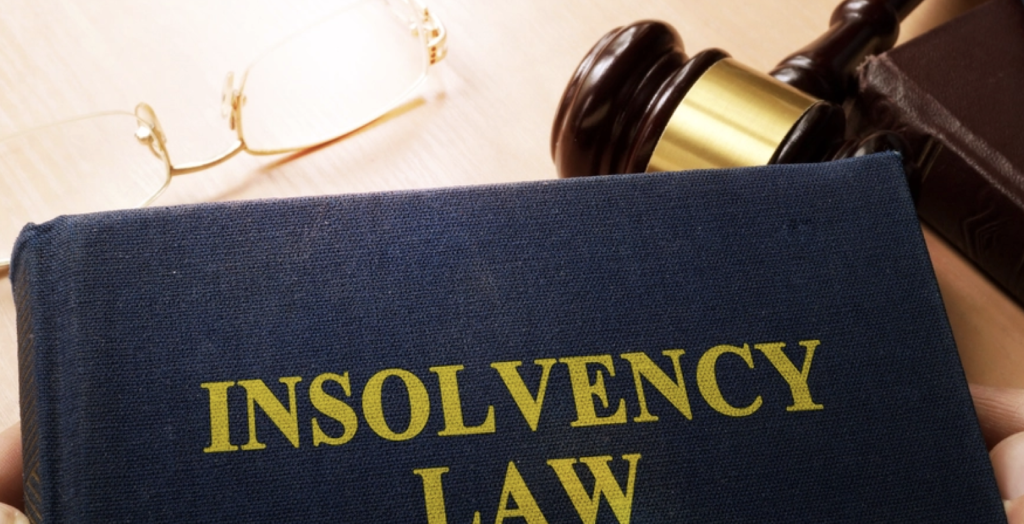3 Simple Techniques For Insolvency Practitioner
3 Simple Techniques For Insolvency Practitioner
Blog Article
Insolvency Practitioner Fundamentals Explained
Table of ContentsInsolvency Practitioner for DummiesSome Known Details About Insolvency Practitioner All about Insolvency PractitionerInsolvency Practitioner Can Be Fun For EveryoneNot known Incorrect Statements About Insolvency Practitioner Rumored Buzz on Insolvency PractitionerExcitement About Insolvency Practitioner
Insolvency is when responsibilities are higher than the worth of the company, or when a borrower can not pay the financial obligations they owe. A company can come to be insolvent as a result of a number of circumstances that cause poor cash money flow. When confronted with bankruptcy, a business or individual can speak to lenders directly and restructure financial obligations to pay them off.
Insolvency can result in insolvency process, in which lawful activity will certainly be taken against the financially troubled person or entity, and possessions. Insolvency Practitioner may be liquidated to settle arrearages. Company owner might speak to financial institutions directly and restructure financial obligations into more manageable installments. Lenders are normally open to this technique due to the fact that they desire to be paid off and prevent losses, even if the settlement gets on a delayed timetable.
The owner produces a proposal describing just how the debt may be reorganized utilizing cost decreases or other prepare for support. The proposition shows lenders just how business may generate sufficient money flow for profitable operations while paying its debts. Typically, a forgiven financial obligation may be taken into consideration earnings by the Irs (IRS).
Insolvency Practitioner Can Be Fun For Anyone
When an organization needs to pay increased costs for products and services, the business passes along the expense to the customer. As opposed to pay the raised cost, numerous customers take their business elsewhere so they can pay less for a product or service. Losing clients causes shedding earnings for paying the business's creditors.
The service may wind up paying huge quantities of money in problems and be overcome procedures. When operations stop, so does the firm's income. Absence of income causes accounts payable and creditors requesting money owed to them. Some business come to be insolvent due to the fact that their goods or solutions do not develop to fit customers' altering requirements.
Insolvency Practitioner - Questions
Expenses go beyond profits and expenses remain unpaid. Types of bankruptcy include cash-flow bankruptcy and balance-sheet insolvency. Cash-flow bankruptcy takes place when a company has the possessions to cover their financial obligations but they remain in the wrong type, such as property rather than liquid funds. Balance-sheet bankruptcy, on the various other hand, suggests an absence of assets in any kind to cover debts.
The IRS states that an individual is financially troubled when the overall liabilities go beyond complete properties. Insolvency Practitioner. A personal bankruptcy, on the various other hand, is a real court order that portrays how a bankrupt person or company will certainly pay off their financial institutions, or how they will sell their possessions in order to make the settlements
Some Ideas on Insolvency Practitioner You Should Know
When a firm or person is insolvent, they can not fulfill their financial responsibilities. Insolvency is not the same as bankruptcy, although a company that has actually come to be insolvent might file for insolvency. Insolvency is the state of not being able to pay your responsibilities while bankruptcy is a legal procedure to discharge your debts.
Recognizing the elements that can result in bankruptcy, such as overspending, can assist you protect against insolvency and its repercussions.
Not known Facts About Insolvency Practitioner
It is well understood that directors and policemans of companies (and supervisors of minimal liability business) owe fiduciary duties to their organizations and their shareholders (or members). These fiduciary click for source responsibilities are specified my explanation by state statutes and, though there are variants from state to state, they usually include a duty of commitment and an obligation of treatment.
The obligation of treatment needs supervisors and officers to work out persistance, to make enlightened choices, and to act in great belief to make sure that their activities are in the most effective rate of interest of the company. Beyond the extent of this conversation, some states enable these tasks to be restricted either by so keeping in mind in the organizational documents or abiding with other requirements.
The smart Trick of Insolvency Practitioner That Nobody is Discussing

Beware about offering investors favoritism at the expense of lenders (e.g., authorizing and funding a reward or a supply redemption). Beware regarding special treatment between courses of investors. Make affordable efforts to learn all the facts prior to taking a specific training course of activity; directors should genuinely think that any type of decisions made remain in the most effective passions of the firm in its whole (i.e., choices will be examined in hindsight in light of the result of such activities on the corporation).
In any insolvency or insolvency proceeding, payments made to specific financial institutions at the expenditure of other creditors can be clawed back, especially if there is some link between the business and the financial institution. Consider proposing at an annual stockholder conference (or any other conference of shareholders) a resolution affirming that all previous business decisions and actions taken by the supervisors and police officers of the company were absorbed excellent belief after an exercise of reasonable treatment.
The Ultimate Guide To Insolvency Practitioner
Completely reveal any kind of personal or company relationships with celebrations beyond of transactions including the corporation to stay clear of the appearance of a problem of interest. In examining prospective fund raising transactions or a sale of assets of the troubled firm, know that these deals may be scrutinized later on taking into account any subsequent development of directors' fiduciary obligations to include financial institutions.
Report this page